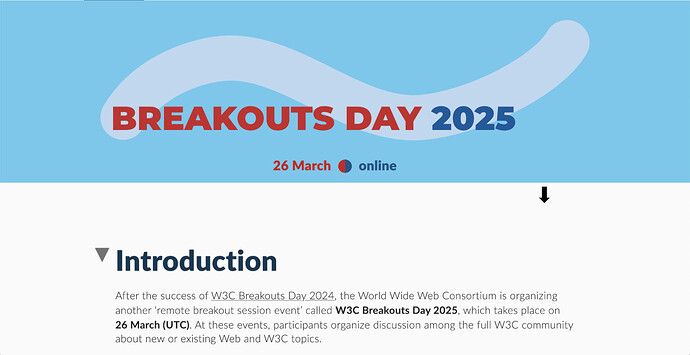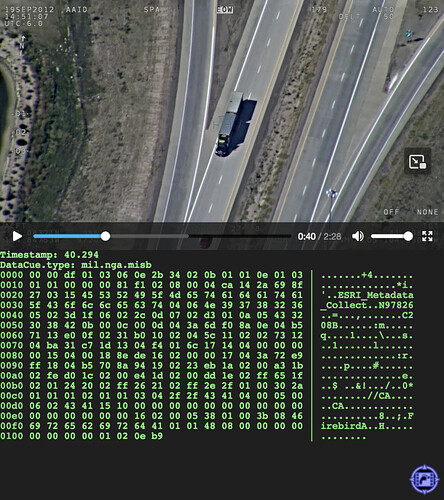Would integration with WebVMT for interoperability with geotagged video users on the web be valuable to the Cesium community?
What is WebVMT?
Web Video Map Tracks (WebVMT) is an open format for synchronising location with video in a web browser, which was published jointly by W3C and OGC in September 2023.
OGC Testbeds have played an important role in guiding WebVMT development in recent years including accessibility, tracking moving objects, camera orientation, sensor synchronisation and data aggregation. Details and demos can be found at webvmt.org.
Comparison with CZML
WebVMT and CZML have different aims:
-
CZML is designed specifically to support Cesium.
-
WebVMT is designed to support timed video metadata, including geospatial data, in a web browser.
WebVMT is a metadata-focussed variant of WebVTT (Web Video Text Tracks) which is already widely supported by web browsers to facilitate adoption by W3C and browser implementers.
Many of Cesium’s features are supported natively by WebVMT - such as paths and polygons. WebVMT also supports extensions, so CZML JSON data can be embedded within WebVMT to synchronise unsupported Cesium features with the web video timeline. For example:
NOTE Attach CZML data to 5 second mark in video timeline
00:00:05.000 -->
{"sync": {"type": "com.cesium.czml",
"data": <CZML_JSON_DATA>}}
Who can use it?
Users of drones, dash cams, body-worn cameras and smartphones can share geotagged footage online with their map of choice. The Get Started guide shows content creators how to export data to WebVMT using free community tools.
Search video by location
HTML integration ensures that geospatial data are accessible to online search engines regardless of video encoding, so web users can quickly find video content by location.
Wider web map API support?
The WebVMT Javascript engine already supports several open source web map APIs including:
Each API offers unique features which allow users to choose the best solution for their use case, and the inclusion of CesiumJS would widen this range further. Both Cesium and WebVMT ecosystems could benefit from interoperability, if there is sufficient community interest.
Community feedback
Please show your support for this initiative by registering your interest and use cases in the comments below. Your feedback is critical to the success of this effort.










